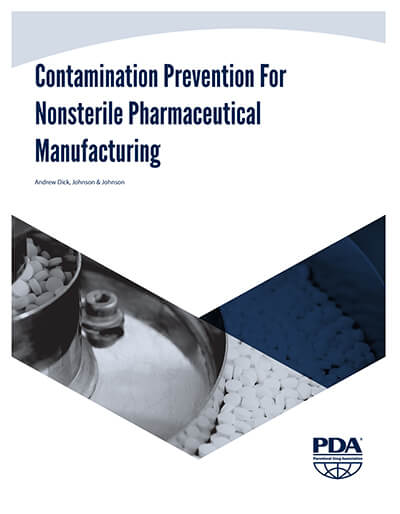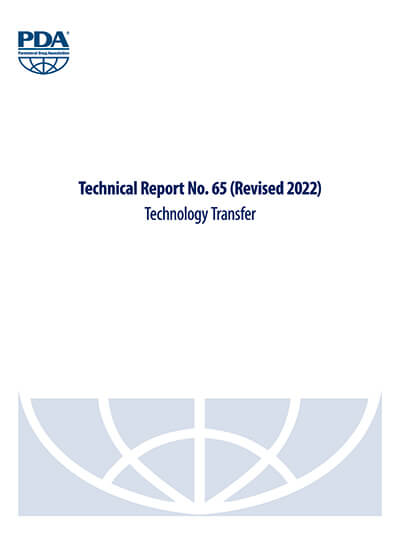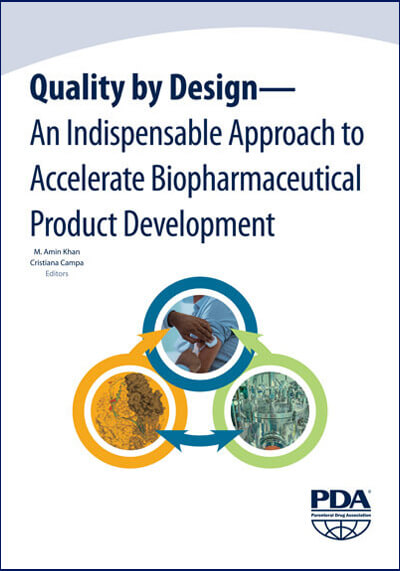Summer Reading: Grab a PDA Book & Leave Your Troubles Behind
The summer of 2022 feels more normal than the previous two summers, except for conflict in Europe, rising prices of gas, food, and just about everything else (and interest rates), and shortages of vital items like cars and microchips.
Okay, maybe the summer of ‘22 isn’t so normal. Even more reason to read a PDA technical book this summer and leave all your worries behind!

Technical Report No. 65 (Revised 2022): Technology Transfer
This technical report aims to provide a standardized approach to the technology transfer process. It supplies a matrixed "Reference Guide to Technology Transfer Activities and Deliverables," which can be used to coordinate cross-functional technology transfer activities that help achieve operational readiness and culminate in regulatory approval. It is intended to provide a level of detail and approaches that can be applied across technology transfer types.
Designed to assist companies in the technology transfer process, this technical report covers the full range of requirements needed, such as new product introductions and the transfer of products that are being manufactured for phase III clinical trials or commercial release, which are the most comprehensive in nature. While the technical report was not specifically written for products at an earlier stage of development, many of the requirements can still be applied.
PDA Staff Light Reading
Walt Morris, Sr. Director, Publishing & Press Relations
The Landmark Julius Caesar: The Complete Works, Edited by Kurt A. Raaflaub
Abaddon’s Gate, by James A. Corey (Audiobook)
Points to Consider in Remote and Hybrid GMP/GDP Audits
This Points to Consider document describes steps that can be taken to ensure an effective and efficient remote assessment. It introduces standard nomenclature to describe the types of remote audits and discusses key considerations for their scheduling, duration, planning, conduct, closing, reporting, and follow up. The document focuses on aspects of auditing that are different in the remote setting from those in on-site audits or that have a particular impact in the remote setting. This document is designed to assist both the auditor and auditee as they work through the challenges of remote and hybrid auditing and determine the changes in practices, standard operating procedures, and quality agreements that are necessary to facilitate effective and efficient remote audits.
PDA Staff Light Reading
Carrie Horton, Project Manager, Regulatory Affairs
Measures of Success: React Less, Lead Better, Improve More, by Mark Graban and Donald J. Wheeler
The Tyranny of Metrics, by Jerry Z. Muller
Technical Report No. 13 (Revised 2022): Fundamentals of an Environmental Monitoring System
This revision of TR 13 aligns with current industry trends and regulatory expectations and provides additional guidance and focus on increased expectations concerning data management and data integrity, qualification and maintenance of controlled environments, and rapid microbiological methods (RMM).
This technical report will aid in the establishment of an environmental monitoring program that is robust, meaningful, and practical while embracing innovation and the principles of quality risk management. Updates regarding microbiological and total airborne particulate control concepts and principles related to facilities involved in the manufacture of sterile pharmaceutical products and other designated cleanroom environments are also included.
While this TR may serve as a resource applicable for controlled environments in general, its primary focus is environmental monitoring for sterile product manufacturing.
PDA Staff Light Reading
Natalia Delgado Del Moral, Sr. Coordinator, Marketing
Get Good with Money, by Tiffany Aliche
The Clocks, by Agatha Christie
ANSI/PDA Standard 02-2021: Cryopreservation of Cells for Use in Cell Therapies, Gene Therapies, and Regenerative Medicine Manufacturing: An Introduction and Best Practices Approach on How to Prepare, Cryopreserve, and Recover Cells, Cell Lines, and Cell-Based Tissue Products
This new standard provides guidance on how to establish suitable procedures for the cryopreservation and recovery of biological cells for use in cell and gene therapy products and regenerative medicine manufacturing either as an intermediate step or when cryopreservation is the final step.
This document presents cryopreservation as a modular process and describes key details that should be considered when developing a cryopreservation and recovery process for a specific use-case. It emphasizes the effect cryopreservation and recovery may have on cell viability and cell function.
This document is a current best practice standard and guide on how to establish suitable conditions for the cryopreservation and recovery of cells, cell lines, and cell-based products for use in cell and gene therapies and regenerative medicine manufacturing.
PDA Staff Light Reading
Katja Yount, Publication Design Specialist
The Dawn of Everything: A New History of Humanity, by David Graeber and David Wengrow
Rising, by Lamonte Valentine
2021 Bestseller
Quality by Design — An Indispensable Approach to Accelerate Biopharmaceutical Product Development
Edited by industry experts Cristiana Campa, Vaccines Technical R&D, GSK, and M. Amin Khan, Vaccines R&D, GSK, is an important contribution to the ongoing dialogue for accelerating CMC product development bridging strategies for biotherapeutics and vaccines., Vaccines R&D, GSK, is an important contribution to the ongoing dialogue for accelerating CMC product development bridging strategies for biotherapeutics and vaccines.
It illustrates how Quality by Design (QbD) can be a powerful enabler of acceleration, fostering deeper understanding of what is critical, what level of CMC risk is acceptable, and hence what elements of product development can be streamlined.
More than 60 authors have contributed to this influential text emphasizing the importance of QbD to product development and commercialization. Several case studies covering biotherapeutics and vaccines are shared by several major companies and well-recognized academic institutions.
PDA Staff Light Reading
Marilyn Foster, Technical Editor/Writer
The Postmistress of Paris, by Meg Waite Clayton
A Woman of No Importance, by Sonia Purnell
PDA-Owned Classic
Contamination Prevention for Nonsterile Pharmaceutical Manufacturing by Andrew Dick

The handbook on Contamination Prevention for Nonsterile Pharmaceutical Manufacturing offers guidelines for best practices to be deployed within a manufacturing facility. It explains where the most common microbiological risks to nonsterile manufacturing reside and how to prevent contamination in the key areas.
The handbook has been designed for easy reading, walking the reader through decision-making steps, including how to set up a facility, what types of equipment to acquire, and how to maintain it, as well as how to clean and sanitize equipment and facilities.
PDA Staff Light Reading
Tehya Enger , Publications Coordinator
When I Was You, by Mina Kent
Born Survivors, by Wendy Holden







